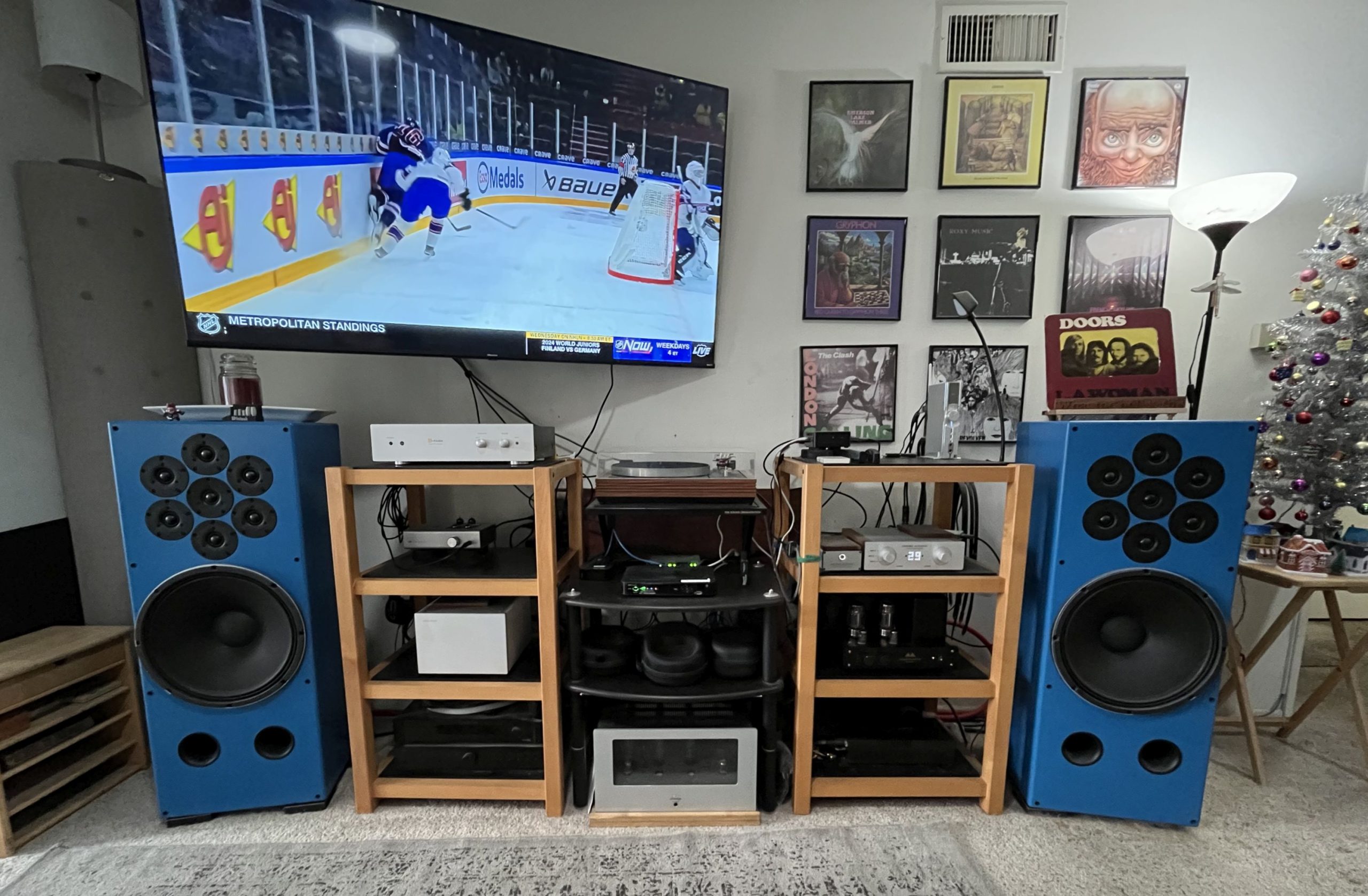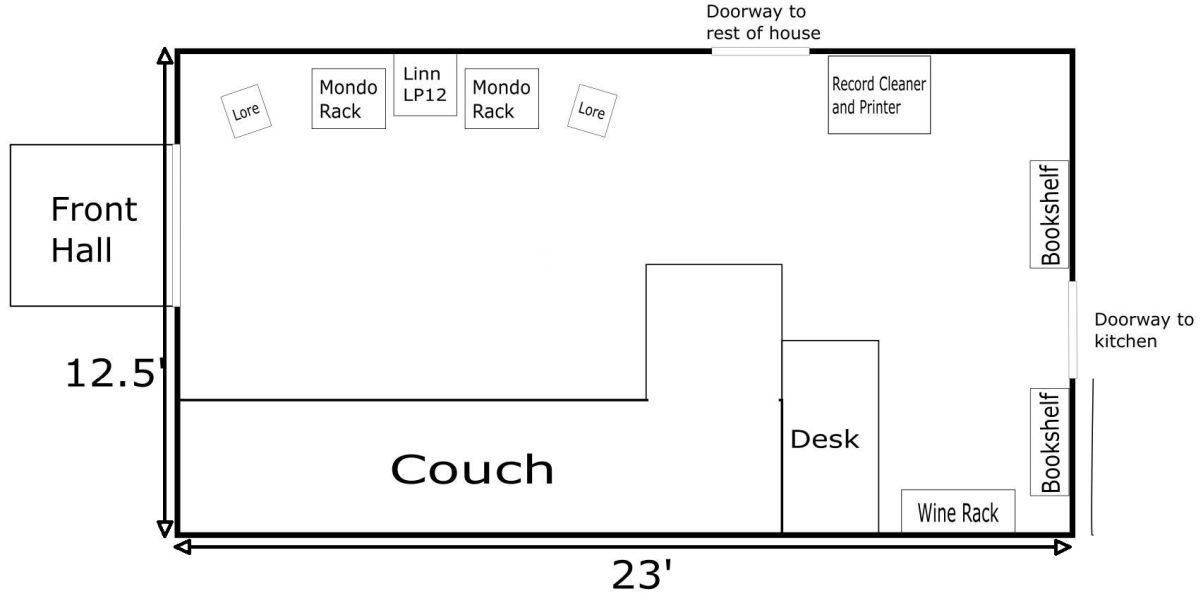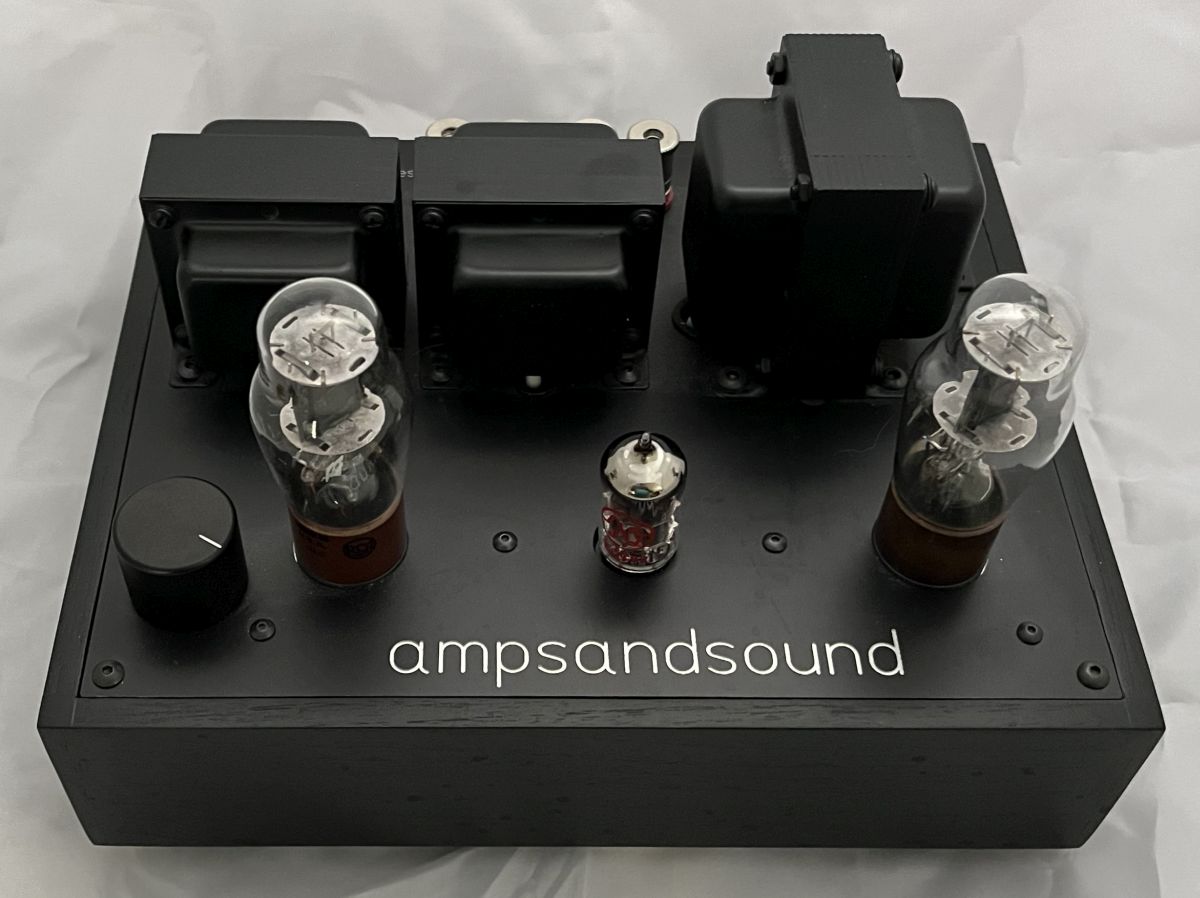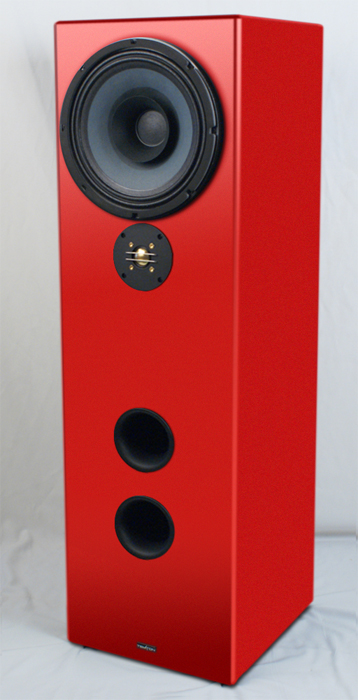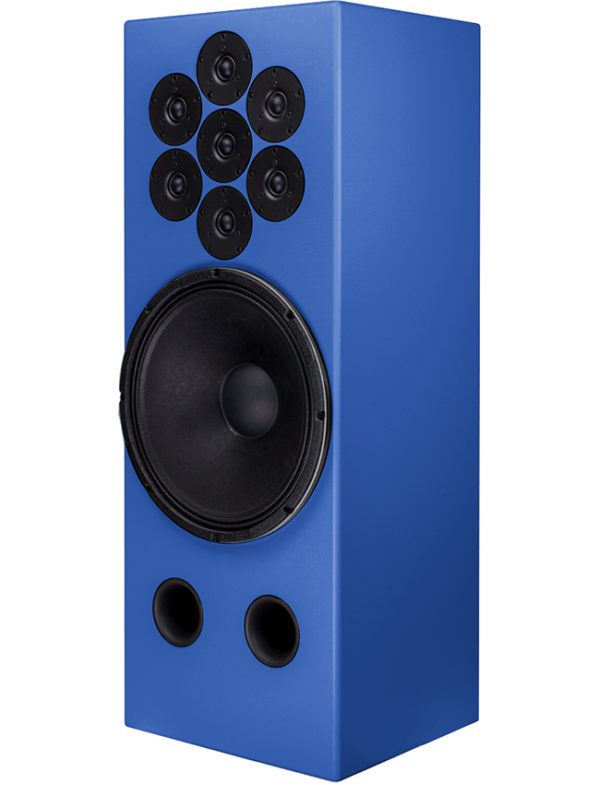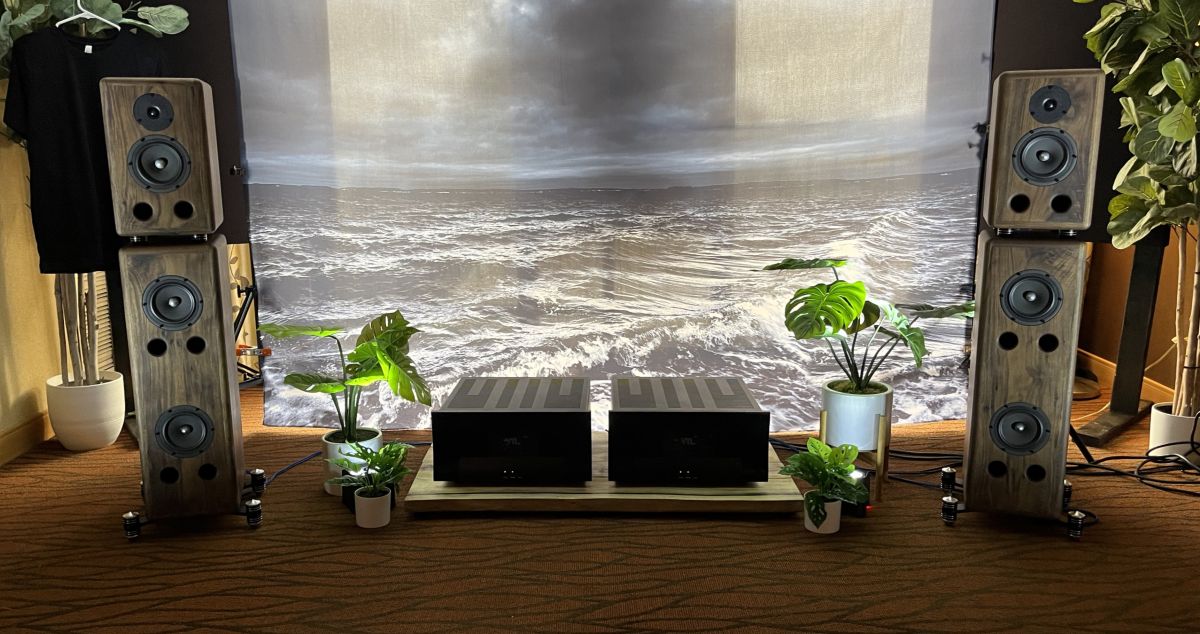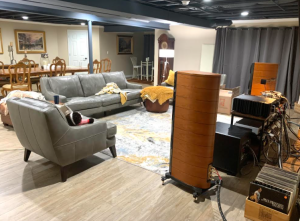This won't be about what you think it will be about. It won't be the typical audio rant about typical audio topics; no arguments about digital vs analog or tube vs solid-state or what music constitutes a worthy effort for a high end system. It will be something a little different.
But first, I've noticed the past couple of years I've had a difficult time sitting down to write, which is not normal for me as the mere act of sitting down and writing I generally find very enjoyable. It is especially enjoyable when I'm writing about something I truly enjoy, and audio is one of those things. It is just that over the past couple of years, mostly due to the lingering effects of a bad case of COVID-19, I have often felt listless and prone to random attacks of severe tinnitus. Listening for enjoyment and concentrating on writing about it has been difficult. Since I work from home and spend most of my time on the computer, I can listen for several hours every day. I only pause the system when I have to pick up the phone.
Fortunately, the tinnitus is a random thing, most days I'm fine and can really dig into to system. Other days, the ringing is so loud and so affected by sounds in my room I can't even turn the system on, let alone enjoy listening. Those days I am generally miserable and in no mood to write either. It seems it is slowly getting better, but I do still lose one or two days a week where a quiet environment is all I want.
Maybe that will count as an explanation of my absence in these pages for the past two years. So, now on to the topic at hand.
Regarding dropping of jaws and smacking of gobs.
Let's start with this. How many times have we heard or read someone describe a change to their system, be it a cable, a tweak, or a major component as a jaw-dropping experience, or leaving them gobsmacked? I understand what they mean. I've been in this game for a long time, but it makes me wonder. In reality for someone who wasn't a dedicated, experienced audiophile, would they hear the same change and either hear it as a slight difference or maybe not hear any difference at all? What we view as large, earth-shattering changes most likely are either insignificant or even non-existent to most other people. When we describe changes in terms of pure shock and awe is it appropriate, or does it lead to making us seem like the crazed, delusional audiophools we often get accused of being?
For reviewers writing for people to read, or seasoned audiophiles talking to friends, if the new power cables you recently tried made a "night and day" difference, or if your new piece of gear left you picking your jaw up off floor, maybe tone it down a little if your comments are directed at less experienced or non-audiophiles. A co-worker asked me if I actually heard a difference in cables and what I used for speaker cable. I explained I had four sets of cables from Audioquest, Nordost, Morrow Audio, and Vermouth Audio, and that in my system they sounded subtly, but for me significantly, different and that some worked better with some gear than others. I generally switched cables when I switched power amps or speakers. When asked if I thought they were "worth it" cost wise, I pointed out that any improvement made was each cable's contribution to the overall sound of the system, and for me, yes, that cost was justified. Mind you all four cables were "reasonably priced" for audiophile cables, ranging from $395 to about $700.
A few years ago I had the opportunity to try a test with a few friends of my son who were in their early twenties. I played part of Pink Floyd's Wish You Were Here (they selected it) on LP twice. The first time was using my 15 wpc single-ended KT88 Antique Sound Labs MG-SI15DT-S amplifier. The second was with my 100 wpc solid-state Burson Timekeeper Virtuoso amp. I really like both amps and regularly swap them out. To me they sound so fundamentally different I hoped anyone could hear the difference. But this group heard no noticeable difference, other than one of them suggesting that "maybe the cymbals are a bit louder through the silver one." I understood it wasn't that they didn't hear a difference as much as they didn't even know what the differences they were listening for might sound like. No experience, no recognition.
I'm reminded of a non-audio event at work a few years ago. Our Marketing Specialist was evaluating printer profiles for a new paper type available for our printers (commercial/professional photographic printers we manufacture and sell, not the kind you use at home). This is not the same as "profiling" your PC monitor or color balancing a film based optical printer, and unless you've worked with commercial/professional high end digital imaging systems you probably don't know how involved creating a real printer/paper profile can be. Our Marketing Specialist is an expert in this with years of experience, but so am I, and I appreciated that he asked my opinion even though I am no longer involved in that aspect of our business. There were three long rolls of prints lined up on a conference room table (yes, under proper and strictly calibrated lighting conditions). Each roll had the same images, one roll each printed using a different profile. After about thirty seconds I stated I preferred Profile #2 as being the most natural and "film-like" of the bunch. I suggested my wife, who also works for the company and who is also an experienced, trained expert in this field, would probably prefer #3. We both agreed #1 wasn't at all to our liking, my commenting it seemed like a visual version of early Beats headphones (some colors ranges were simply over saturated and the overall balance between shadows, mid-tones and highlights was off).
So, of course he later asked my wife to offer her opinion on them. She immediately wrote off #1 as being no good, suggested I probably liked #2 and that #3 was her choice.
Later on, in discussing this with our Marketing Specialist, I made a comment that the majority of people in the office probably either couldn't tell the difference in any of the three samples, or would pick #1, just because it was most different (most readily noticeable) or because it was the snappiest due to the over saturation. So he randomly asked some people in the office to take a look. These were not photo or imaging specialists or people with a history of working in photography. Just as I predicted, most felt they all looked the same, but those that did pick a preference, all picked #1, and most seemed to focus on a particular single image of someone wearing a blue jacket that was really badly over saturated. Once again, no experience, no recognition.
One other important point is that for all the testing, measuring, and calculating to form the profile tables, the end result could only be determined by some experienced observers visually and subjectively selecting the "best" profile. That, and the "best" was still open to personal preference and taste. Much like high end audio in that regard, maybe more so.
There you have it. Circular thinking maybe, but until someone knows what they are looking or listening for, then they don't even recognize it when they see it or hear it.
I Can't Imagine…
We hear or read this phrase often. Usually it is in regard to someone describing their system and saying "I can't imagine it getting much better than this." If in an online discussion, it usually then breaks down into rants about the "Law of Diminishing Returns" and devolves into claims of snake-oil, the foolishness of overspending, and the placebo effect. Everyone is an expert apparently. What is too often missed is that a statement that should reflect a moment of great self-realization is ignored completely.
Whoever says "I can't imagine it gets better than this" is actually right, and probably unknowingly making a statement about their lack of real-world experience and understanding of how good an audio system can ultimately sound. If you've never had the experience to hear over time and learn the differences and changes each piece brings to a system, you don't know what those differences might be.
Maybe things were different when those of us who are in our 60s or older now started out? For us, we started as teenagers or college students. We all had friends with stereo systems and we all knew whose systems sounded better than the others. Some of us took an interest to find out why. For as much as I can't remember about certain events in my life, I clearly remember my older brother's friend's parents' system from around 1968 or 69, even though I only heard it maybe three or four times: a Garrard 301 table, Silvertone tube amplifiers, and big floor standing JBL speakers.
That might have set all this motion for me. I wasn't just interested that it sounded so good, but wanted to know why. Ever since then, I've always assumed whatever level of sound quality I get, I can always imagine something sounding better.
Though it ties right in to my professional career in the photo industry, understanding differences and "improvements" is ingrained in my life. When you have professional and scientific training in observational skills you learn to understand your biases, preferences, expectations and are less likely to fall into common issues with "placebo effect" or outside suggestions.
In college, at Rochester Institute of Technology in the 1970s, we were understandably largely the "nerd brigade," but there was a huge collection of great audio systems even in the dorms. I had my nice sounding system (Stanton turntable, Kenwood integrated amp and large EPI 180 speakers) but two doors down from me was guy with Revox B77 R2R, Lenco turntable, McIntosh electronics, and Rectilinear IIIa speakers. There were numerous rooms with Advents, JBL L26 or L100, Marantz receivers, Dynaco tube gear, and other great systems throughout the dorm. Many of the engineering students had built their own amplifiers or modified tube amps.
A few of us started comparing and asking questions. Why did my $130 Kenwood KA-3500 sound better in my system than my neighbor's Kenwood KA-7100 in spite of the more expensive model having 1/10 the rated distortion and 50% more power? Why did the Lenco turntable sound better than a Pioneer PL-12D, even if they both had similar Shure V15 cartridges? Once or twice a month we would gather to do a comparison of two "competing" pieces in someone's system.
By the time I graduated in 1979 I had developed a life-long love for the audio world and a dedication to pursue it for listening to my ever growing record collection. But I also understood that hearing, comparing, and gaining experience was the key.
Writing about HiFi or reviewing equipment hadn't been a thought, because though I subscribed to Stereo Review and High Fidelity magazines, their equipment reviews were largely technical and marketing articles, describing the features and measuring the specifications and letting you know if they worked and "met or exceeded" published specs. Not terribly interesting. I mostly read their record reviews.
But, back to the ability to "imagine" better sound, without actually hearing it, experiencing it, and understanding it, you don't really know what it is or what it could be. Most people don't think past loudness and frequency response. It takes time to get past those.
Best solution, go make friends that share the hobby, join an audiophile club or start your own. Go to audio shows, and take time to pick a few rooms and hear what is better, worse or just different from other rooms. Find a way to immerse yourself in it and be willing to observe and learn. It will only increase your enjoyment over time





